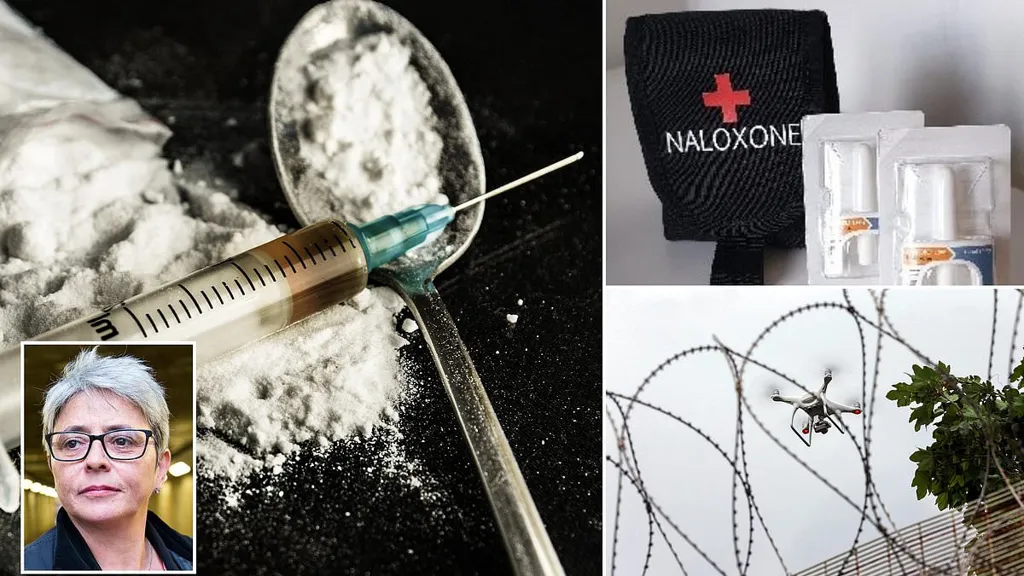More than two prisoners every month are taking such a potent cocktail of illegal drugs that officers have had to administer life-saving antidotes.
Amid an 'epidemic' of drug-taking behind bars, more than a third of inmates have admitted taking illegal substances in prison, with more than a quarter saying their drug use only started - or increased - while in custody.
The Mail has told how drones found laden with drugs and needles had been flown into jails, as organised crime groups target addicts in the prison estate.
One taxpayer funded group, the Scottish Drugs Forum, has claimed free needles and vapes should be handed out to prisoners so they can take Class A drugs behind bars in a 'safer' way.
Now, the Scottish Prison Service has admitted that officers have had to administer an overdose antidote medication called Naloxone to 53 prisoners. That equates, it says, to more than two every month in the last two years.
The Scottish Prison Service hailed the figures, which it released to coincide with International Overdose Awareness Day, as a key tool to 'safeguard individuals' and 'support recovery journeys'.
However serious concerns have been raised about the statistics, which lay bare the scale of the drugs crisis in Scotland's prison estate.
Last night drugs, alcohol and women's health spokeswoman Annie Wells said: 'Everyone wants to prevent fatalities, but stopping overdoses in prisons isn't a matter for self-congratulation - they shouldn't occur in the first place.'
'Prisons should have the strictest measures against the scourge of drugs and addicts should be getting support to stop using, not last-minute interventions.'
The Scottish Prison Service first introduced naloxone training for prison staff in 2016; however, the initial phase was only aimed at nightshift staff and managers.
From June 2023, the scheme was expanded to include training for all operational staff.
Prisoners have also been trained in how to administer naloxone.
So-called 'Peer Champions' are able to train other inmates across ten prisons to also administer the antidote, which comes in an injection form or a nasal spray.
According to the latest Scottish Prisoners Survey, 35 per cent of inmates said they used illegal drugs, up from 29 per cent in 2019.
Inmates have told third sector organisations the most common drugs are synthetic cannabinoids, benzodiazepines and opioids, some of which they put into vapes, mix into hot drinks or inject.
A Scottish Prison Service spokesman said: 'The health and wellbeing of those in our care is a key priority. Our staff work hard to tackle the supply of substances into establishments, safeguard individuals from the harms they cause and support recovery journeys.'
